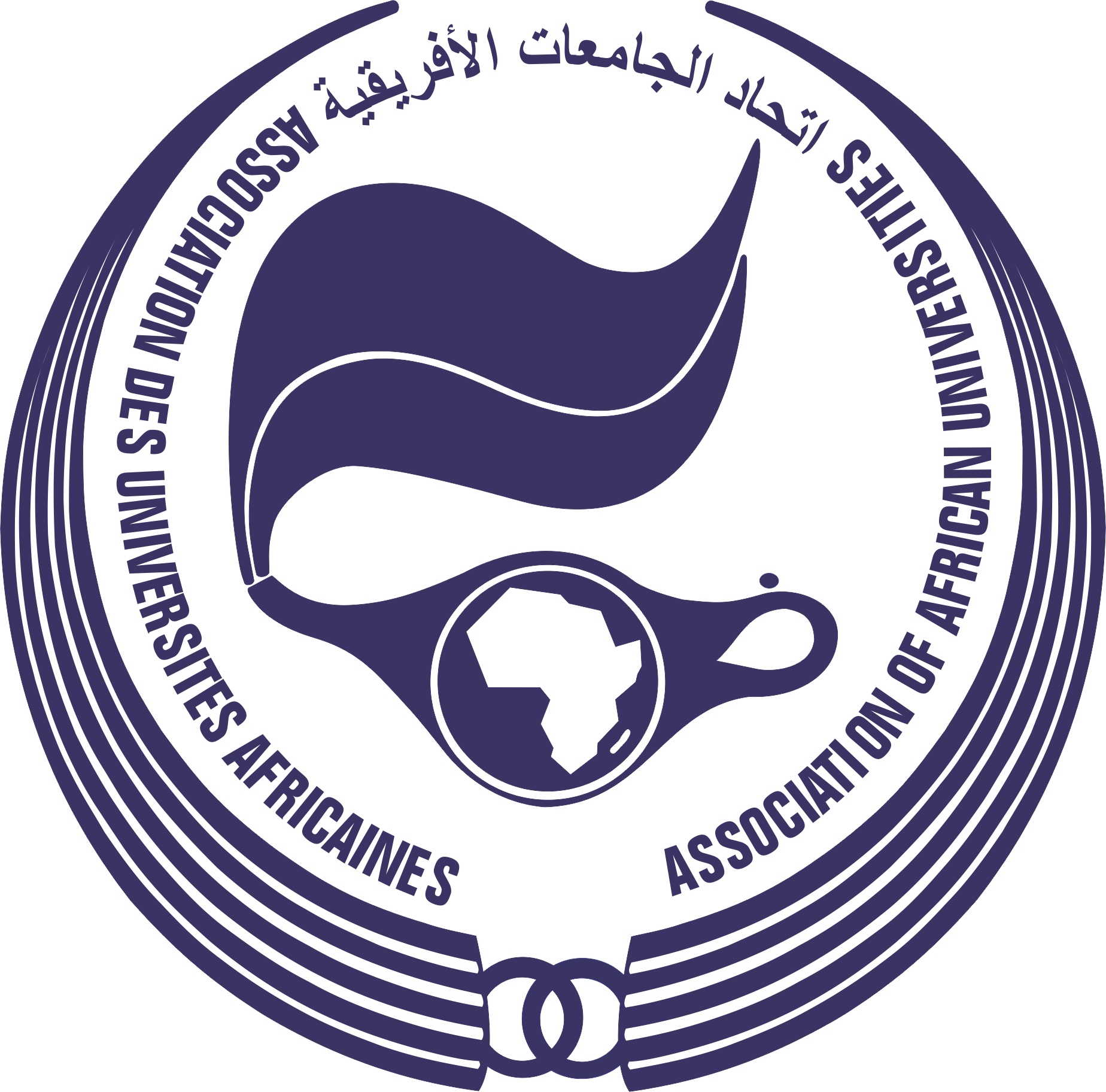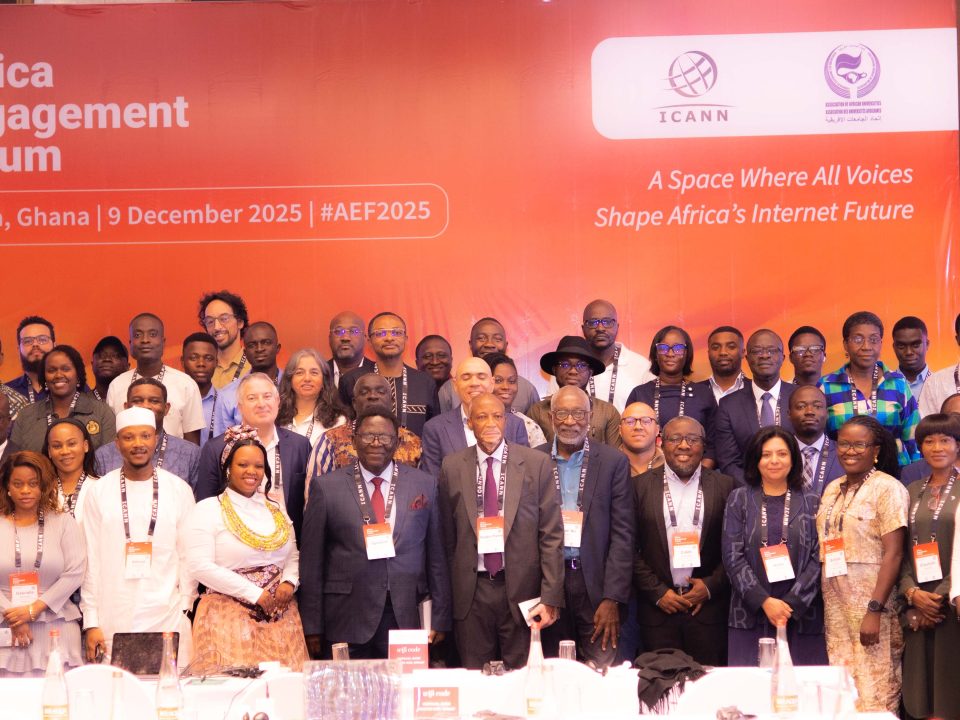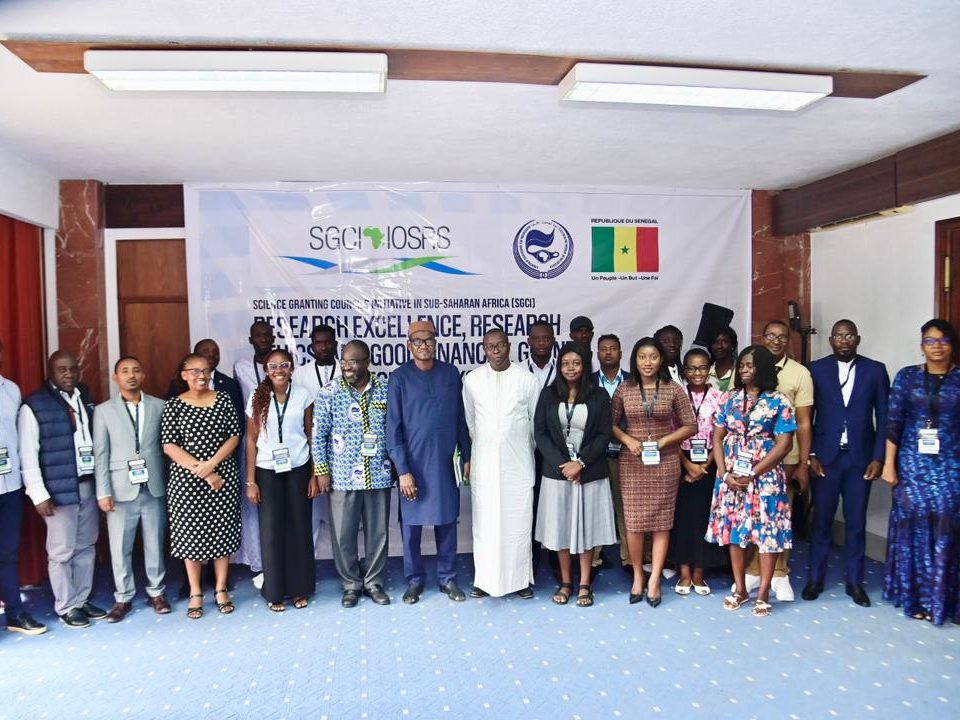
Recruitment of Project Coordinator Africa Climate Collaborative
September 29, 2025
AAU Congratulates H.E Prof. Gaspard Banyankimbona on His Appointment as the African Union Commissioner for Education, Science, Technology, and Innovation
October 14, 2025DIRECTOR – KNOWLEDGE MANAGEMENT, INFORMATION COMMUNICATIONS AND TECHNOLOGY
Location: AAU Secretariat – Accra-Ghana
Category: Senior Professional Staff
Emoluments: P4
Contract Type: Four years renewable
Closing Date: December 1st, 2025
-
Background & Strategic Context
The Association of African Universities (AAU) serves as the leading organization and forum for collaboration, information exchange, and cooperation among Higher Education Institutions (HEIs) across Africa. It acts as the collective voice for African higher education and offers a distinguished platform for networking among these institutions. Currently, the AAU boasts a membership of 440 HEIs from 48 African countries, with its Secretariat headquartered in Accra, Ghana.
The decision to establish the AAU was made during a meeting of leaders from African Higher Education Institutions at the University of Khartoum, Sudan, in September 1963. The AAU founding conference, facilitated by UNESCO and attended by representatives from 34 African universities, was held at Mohammed V University in Rabat, Morocco, on November 12, 1967. During this event, the AAU constitution was formally adopted, and the first officers and members of the Executive Board were elected.
The AAU is recognized as the technical implementation arm of the African Union Commission for strategies and programs concerning higher education in Africa. The AAU leads the Higher Education Cluster responsible for implementing Strategic Objective 9, which focuses on revitalizing and expanding tertiary education under the Continental Education Strategy for Africa (CESA 16-25).
Recently, the AAU has played a key role in guiding African higher education institutions to actively contribute to the development of the new African Union Commission strategies – the CESA 26-35 and the STISA 2034 (science technology innovation strategy for Africa). This guidance has been provided through organizing virtual meetings and ensuring their participation, as well as facilitating the completion of relevant surveys.
Guided by its Strategic Plan (2024–2030), the AAU is charting a bold new path one that harnesses knowledge management, digital innovation, and strategic communication to strengthen the resilience, visibility, and global competitiveness of African higher education institutions.
To advance this vision, the AAU seeks to appoint a Director of Knowledge Management, Information, Communication & Technology (KM-ICT), a visionary leader who will champion digital transformation, foster knowledge sharing, and build dynamic partnerships across the continent.
The Director will play a critical role in ensuring that African universities are equipped with the information systems, technological tools, and collaborative networks needed to thrive in today’s knowledge-driven world.
-
Purpose / Objective of the Role
To provide strategic direction, innovation, and leadership in the integration of knowledge management, information systems, communication strategies, and ICT infrastructure, enabling AAU to serve as a continental knowledge hub and catalyst for digital transformation among African universities.
3. Key Responsibilities
Below are core functions and duties; these are indicative and may evolve with strategic priorities.
A. Strategic Leadership
- Lead the conceptualization and execution of AAU’s KM-ICT Strategy aligned with its current Strategic Plan.
- Champion a digital transformation agenda across member universities, fostering the use of data, ICT, and digital platforms for teaching, research, administration, and collaboration.
- Serve as a strategic advisor to the Secretary-General and Management Team on issues relating to knowledge systems, communication, and ICT.
- Provide leadership, mentorship, and capacity building to KM-ICT teams and professionals within AAU and across its member institutions.
B. Knowledge Management
- Provide strategic leadership and direction for the Knowledge management, aligning its activities with the AAU Strategic plan
- Develop and implement a comprehensive Knowledge Management Framework for AAU, encompassing data collection, curation, archiving, sharing, and learning.
- Establish a continental knowledge repository to capture research outputs, innovations, policies, and best practices from member universities.
- Facilitate communities of practice and knowledge-sharing networks among African universities.
- Promote open knowledge, evidence-based policy development, and dissemination of higher education innovations.
- Ensure effective integration of Monitoring, Evaluation, and Learning (MEL) systems for organizational learning.
C. Information and Communication Technology (ICT)
- Oversee the design, deployment, and maintenance of AAU’s ICT infrastructure, including networks, databases, cloud systems, and digital platforms.
- Lead the development of digital solutions to support AAU operations such as Management Information Systems (MIS), Grants systems, Procurement systems, Grievance Management, Scholarship applications platforms, e-learning platforms, virtual collaboration and all tools necessary for AAU functionality.
- Promote cybersecurity, data governance, and compliance with international standards.
- Support African universities in adopting emerging technologies AI, data analytics, open science, and digital research infrastructures.
- Advocate for digital inclusivity, particularly for francophone, lusophone, and marginalized institutions.
- Ensure data governance, cybersecurity, privacy, and compliance with relevant regulations.
- Monitor trends in digital innovation, emerging technologies (e.g. AI, machine learning, data analytics), and recommend their adoption in AAU’s context.
- Oversee ICT support services and user training for AAU staff and stakeholders.
D. Communication and Outreach
- Lead the development and execution of AAU’s integrated communication and dissemination strategy (publications, website, social media, multimedia, branding).
- Supervise the production and dissemination of communication products (newsletters, reports, videos, websites, social media, and publications).
- Strengthening the AAU’s media relations and digital footprint to enhance its influence and visibility.
- Ensure internal communication systems facilitate knowledge exchange and institutional cohesion.
- Ensure that AAU’s knowledge and research outputs are effectively packaged, disseminated, and promoted to internal and external stakeholders.
- Collaborate with departments to publicize events, conferences, webinars, and continental initiatives.
- Maintain relationships with media partners, academic networks, and information platforms.
- Ensure that communication approaches are inclusive, multilingual (as needed), and aligned with AAU’s values
E. Partnerships and Networking
- Inspire a continental community of ICT and knowledge management leaders within African universities.
- Establish partnerships with African and international universities, research networks, development agencies, and technology companies.
- Mobilize resources for KM-ICT initiatives through proposals, grants, and collaborations.
- Represent AAU in continental and global networks related to ICT, knowledge management, open knowledge, digital innovation, and higher education.
F. Monitoring, Evaluation & Reporting
- Develop measurable Key Performance Indicators (KPIs) for KM-ICT initiatives.
- Monitor and evaluate progress, prepare periodic reports, and present to senior leadership and governance bodies.
- Ensure quality assurance in ICT services, data integrity, system uptime, and responsiveness.
- Produce periodic reports highlighting impact, lessons learned, and best practices.
- Conduct periodic risk assessments (cybersecurity, system failure, data loss) and propose mitigation plans.
- Ensure accountability, transparency, and continuous improvement across all units.
- Support monitoring, evaluation, and learning (MEL) through data systems, dashboards, and visualization tools to inform decision-making.
- Encourage internal knowledge sharing, institutional memory, and cross-departmental collaboration.
-
Required Competencies & Experience
Below are essential and preferred qualifications, competencies, and personal attributes.
4.1 Education & Professional Qualifications
- PhD in Information Systems, Computer Science, Knowledge Management, ICT, Library & Information Science, or a related field.
- Professional certifications in ICT project management, cybersecurity, or knowledge management (e.g. PMP, CISM, CDKM) are advantageous
4.2 Experience
- Familiarity with the University environment and must have worked in a university for 5 years
- At least 10–15 years of progressively responsible experience in ICT, knowledge management, communications, or related functions, in international or continental settings.
- Familiarity with African and International Scholarly Works.
- Prior leadership experience managing multidisciplinary teams (technical and nontechnical).
- The ability to manage multiple and complex projects simultaneously will also be key to success in this role.
- Proven track record in digital transformation, MIS development, data systems, or ICT infrastructure in a complex organization.
- Experience in engagement with higher education, academic networks, research institutions, or pan-African programs.
- Demonstrated ability to secure and manage donor-funded projects or grants in ICT/knowledge portfolios.
- Experience in stakeholder engagement, communications strategy, and publication dissemination.
4.3 Core Skills & Competencies
- Strategic thinking and visionary leadership
- Strong technical competence in ICT, systems architecture, data governance, cybersecurity, and emerging technologies
- Knowledge management skills: curation, taxonomy, metadata, knowledge sharing systems
- Excellent written and verbal communication skills; ability to translate technical concepts for nontechnical audiences
- Project management, budgeting, and resource mobilization skills
- Strong interpersonal and diplomacy skills; cross-cultural sensitivity and networking ability
- Problem-solving capacity, innovation orientation, adaptability
- Integrity, accountability, and results-driven mindset
5. Governance, Reporting & Relationships
- The Director reports to the Secretary-General and is part of the management leadership team.
- Works closely with heads of Programs, Research, Finance, Administration, Member Services, and other AAU units to align KM-ICT support with institutional needs.
- Collaborate with external stakeholders, member universities, regional offices, donors, and partner organizations.
- Supervise ICT, KM, communications, web, and data staff.
6. Terms & Conditions
- Remuneration: As per AAU salary scale and benefits policy.
- Appointment: Subject to performance review (e.g. annual reviews) and possible renewal.
- Relocation, travel, and allowances: As per AAU rules.
- Compliance: Expected to abide by AAU policies (e.g. ethics, data privacy, procurement).
- The contract will be for a period of four (4) years, subject to a probationary period of one (1) year. Renewable but subject to availability of fund.
- Conditions of Employment
- The AAU offers an attractive remuneration package calculated and paid in US dollars;
- Annual leave of twenty-one (21) working days
- Other attractive benefits include a monthly post-adjustment allowance and rent subsidy
How to Apply
The AAU is an equal opportunity employer. As part of a conscious effort of the Association always to reflect the diversity of the African academy, women and non-Anglophone candidates are strongly encouraged to apply.
Applications should comprise:
- A statement of interest and fitness for the position
- An indication of the date of availability to assume duty
- A detailed curriculum vitae describing applicant’s professional experience and qualification for the position
- Three (3) reference letters, one of which should be outside the candidate’s home country
APPLICATION PROCESS
Applications and nominations should be completed online by clicking on the link that follows: https://www.research.net/r/DICTKM25
Please note that, no hard copies of the application will be accepted.
Applications should be addressed to:
The Human Resource & Administrative Manager
Association of African Universities, African Universities House,
Trinity Avenue
East Legon,
P.O. Box AN 5744
ACCRA,
Three support letters should be submitted directly by the referees to this link: https://www.research.net/r/RefDICTKM25
Closing Date
- Closing date for receipt of applications is December 1st, 2025. The Association reserves the right to extend the closing date if deemed necessary, and the right to make no appointment.
- The AAU will respond to short-listed candidates only.
Interview
- Short-listed candidates will be invited for an interview on dates to be communicated to them a week before the interview.




